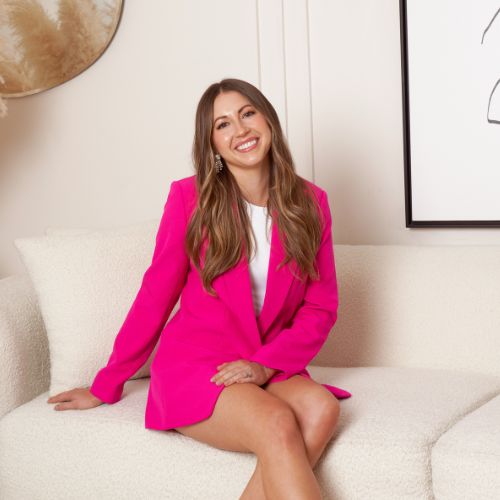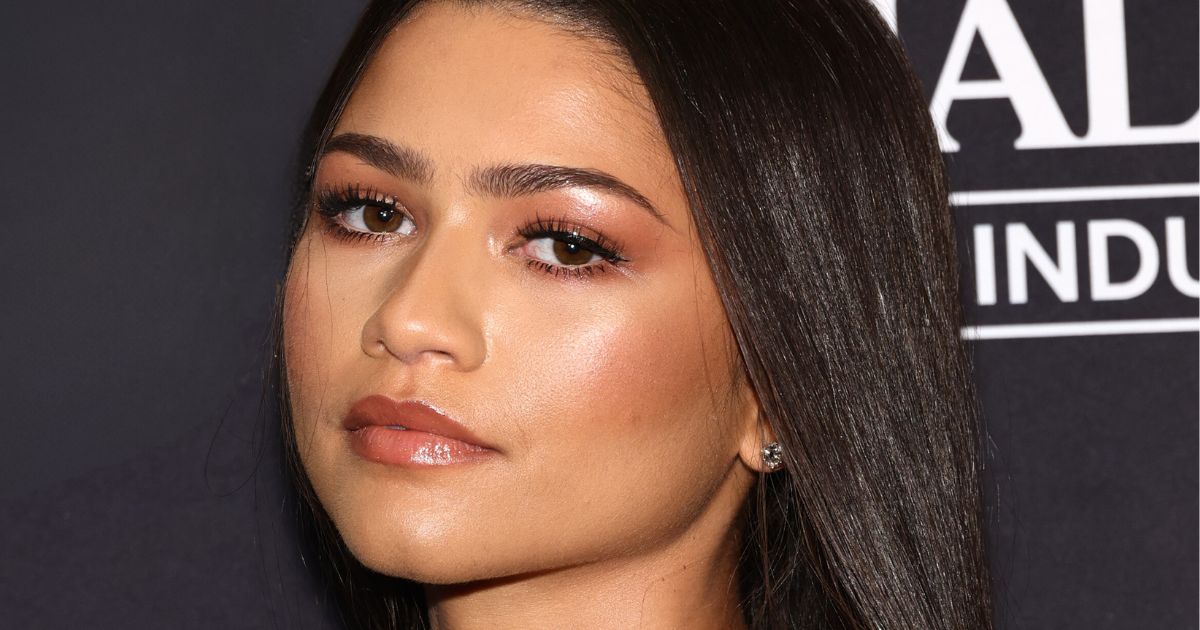Last Friday, I was laying in bed doing my nightly TikTok scroll when panic ensued. A video that had popped up on my FYP led me to believe that after years of thinking I had my makeup routine mastered, I actually might have been doing it wrong all along. While there’s obviously no one perfect answer for how to do your makeup, the high-contrast makeup theory might help enhance your features in the most flattering way.
I’m breaking down everything you need to know about the high-contrast makeup theory, and how to apply it to your current makeup routine.
What Is the Contrast Makeup Theory?
Dubbed by French TikTok creator @alieenor, the contrast makeup theory is based on “the difference in value between your face, eyes, eyebrows, and hair.” According to Aliénor, keeping the differences in mind while doing your makeup can be game-changing.
If you’ve ever edited a photo, you’ve likely noticed the “contrast” option at the bottom of your editing app. Toggling the slider leads to the shadows and highlights of your image being more or less prevalent—and the same goes for the high-contrast makeup theory. Aliénor’s theory explains that by keeping the natural contrast levels between your features in mind while you do your makeup, you can either intensify or soften the contrast—kind of like editing that aforementioned photo, but IRL—for the most flattering, harmonious makeup look.
If you’re still confused (I get it, I was at first, too), Aliénor created an in-app TikTok filter that can be used to easily identify your contrast levels.
Low-Contrast Makeup

Features are considered low-contrast when “the difference of value is very low between the hair, the eyes and the skin,” according to Ailénor. She describes the ideal low-contrast makeup look as “very soft and ethereal, kind of dreamy, and not very strong,” meaning that no one feature should stand out more than the rest. The trend-originator suggests adding a small bit of color to the cheeks or lips, but with a light hand, so as to not put more value on one area of the face than another.
Those with low contrast also ideally want to prioritize the tones of the makeup they’re using. For example, rather than applying a bright-pink blush, choosing one that’s closer to their natural flush can look more harmonious. Similarly, opting for an under-eye concealer in a shade that’s close to their skin tone is a better option than one that’s several shades lighter.
Medium-Contrast Makeup

If you have “a little difference between the value of your face and your hair, eyes, and eyebrows,” you’re probably medium contrast, according to Ailénor.
Ironically, she goes on to say that in order to create a more natural makeup look, you need to add a bit of intensity via a blush or lipstick that’s higher in pigmentation. You’re also free to add a bit more intensity to the eyes, but you’ll still want to ensure that you’re choosing shades that aren’t too much darker than your skin tone (think nudes, taupes, and browns). The key with medium-contrast makeup is to keep the features balanced; if you’re opting for a soft, smokey eye, you’ll want to also add a touch of lipstick to keep everything harmonious.
High-Contrast Makeup

As you might have guessed, features are considered high contrast when “the difference of value is very high between the eyes, the eyebrows, the hair, and the skin,” says Ailénor. Here, the goal is to soften the contrast between features, rather than emphasize it further.
To soften the contrast of high-contrast features with makeup, Ailénor suggests opting for more intense eye makeup and highly saturated lip colors. You have the room to be experimental; intense, graphic eyeliner looks and deep, moody lip shades are made for you. Bold lip colors paired with minimal or no eye makeup are also especially flattering on those with high contrast.

ABOUT THE AUTHOR
Tinsley Crisp, Fashion & Beauty Staff Writer
Tinsley Crisp is a Fashion & Beauty Staff Writer at The Everygirl and specializes in reporting on the season’s latest trends and hottest products. As a New York City-based stylist, she’s committed to injecting joy into the art of getting dressed and delivering attainable yet aspirational content to our readers.

